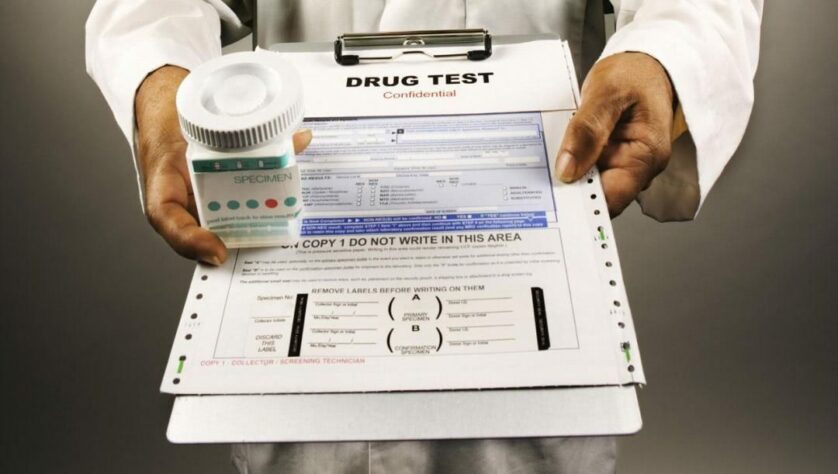Understanding Workers Comp Drug Tests: What Happens if You Fail?
Some companies implement “post-incident” drug tests for employees injured on the job. While legally permissible under OSHA regulations, employers cannot use drug tests to discourage workers from claiming workers’ compensation benefits. This article explores the implications of failing a workers comp drug test and outlines your legal rights in such situations, incorporating the latest information from the past year.
Workers Comp Drug Tests: Post-Incident Screening
1. OSHA Regulations: OSHA guidelines limit employers in mandating drug tests, recommending them only when “employee drug use is likely to have contributed to the incident.” Employers can enforce post-incident drug tests per their policies but cannot make testing a prerequisite for workers’ compensation benefits or as a deterrent to claiming those benefits.
2. State Regulations on Alcohol or Drug-Related Injuries: In numerous states, employers and insurers may deny benefits to employees impaired by alcohol or drugs if the impairment caused the injury. Consequently, drug testing becomes part of the workers’ compensation process, with employers needing reasonable suspicion of substance involvement rather than random testing.
Failing a Workers Comp Drug Test: What Happens?
1. Causation and Timing:
Causation: Even if drugs or alcohol are present in your system, benefits may not be denied if the substance did not cause the injury. For instance, if a coworker’s mistake, not impairment, led to the accident, you may still be entitled to compensation.
Timing: Drugs can remain detectable for days after use, leading to a positive test even if the substance did not contribute to the incident. Understanding the timing is crucial, as delayed testing might not accurately reflect the influence during the accident.
1. Commonly Tested Drugs: Various drugs, such as marijuana, hydrocodone, cocaine, and others, can persist in the system long after their effects wear off. Awareness of these factors is vital when interpreting drug test results.
2. State-Specific Rules on Eligibility:
3. Alcohol or Drug-Related Injuries: State laws differ in whether employees remain eligible for workers’ compensation benefits if injuries result from alcohol or drug use. Some states disqualify such claims, while others maintain eligibility.
Workers Comp Drug Test Before Surgery: Does It Happen?
1. Employer Policies:
Drug Testing Policy: Some companies implement drug testing policies for workers’ comp claims, including pre-surgery. Compliance with such policies is crucial to access medical treatments or procedures.
Positive Tests: A positive test may not automatically disqualify you from benefits. If it has been a while since the injury, determining substance-related causation might be challenging.
2. Legal Consultation:
State-Specific Considerations: Seeking advice from a local lawyer is paramount. State laws vary, and an attorney can clarify your rights and potential implications of a positive drug test under your state’s workers’ compensation regulations.
Denied Workers Comp Due to Drug or Alcohol Impairment: Legal Rights
1. Consulting a Lawyer: If denied workers’ compensation due to a failed drug test, consult a lawyer promptly. Denials might not be justified, and legal intervention can assess the validity of the denial. Attorneys can also pursue additional compensation for wrongful denials under bad faith claims.
2. Potential Damages:
Full Benefits: If eligible, you may still be entitled to full benefits despite a positive drug test.
Damages for Denial: Employers denying benefits without valid grounds may be liable for damages, and legal counsel can assist in pursuing these remedies.
3. Alternative Compensation:
Social Security Disability: If ineligible for workers’ compensation, alternative options such as Social Security disability might be available. Legal practitioners can evaluate all potential avenues for financial compensation.
Can a Lawyer Help Obtain Workers Comp Benefits After Failing a Drug Test?
1. Legal Assistance: If you fail a drug test, it does not automatically render you ineligible for workers’ compensation. Lawyers can explore various avenues, challenging test accuracy or demonstrating that substance use did not contribute to the accident.
2. Full Assessment of Rights: Legal practitioners assess your situation comprehensively, exploring eligibility for medical, disability, and rehabilitation benefits. They utilize their experience to secure all available forms of financial compensation on your behalf.
Navigating the complexities of workers’ compensation after failing a drug test requires careful consideration of causation, timing, and state-specific regulations. Consulting with a local lawyer ensures informed decisions, protecting your health and financial stability.






